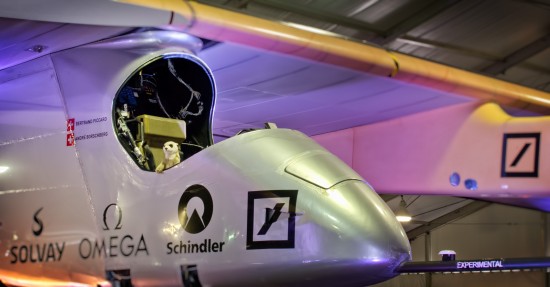A solar-powered aircraft from Switzerland entered the record books (again) early this morning when it landed in Dallas/Fort Worth. Pilot André Borschberg had traveled 957 miles from Phoenix in a flight lasting 18 hours and 21 minutes. The previous distance record was set last year by Solar Impulse (SI) in a 868 mile trip from Switzerland to Spain.
I interviewed Borschberg and SI’s other pilot, Bertrand Piccard, in Phoenix for a piece I wrote for Grist (below).
Check out, too, this GigaPan image of Solar Impulse. It’s a composite of 70 separate images taken with a robotic device and stitched together to form a seamless and “zoomable” picture. By clicking on a detail in the image you can zoom in for a closer look. Click here for the full GigaPan experience, including navigational thumbnails with explanatory text.
Solar plane crosses U.S., injects sexiness into the green conversation (Grist)
Standing beside Solar Impulse — the world’s most advanced solar aircraft — in a hangar at the Phoenix Sky Harbor International Airport on a recent afternoon, Bertrand Piccard attempted to diagnose humankind’s biggest problem.
We are being bored to death, he opined.
“People talk about protecting the environment and it’s boring,” the 53-year-old Swiss aviator/psychiatrist said. Discussions about climate change are even worse. “Those,” he added, “are boring and depressing.”
via Solar plane crosses U.S., injects sexiness into the green conversation | Grist.

